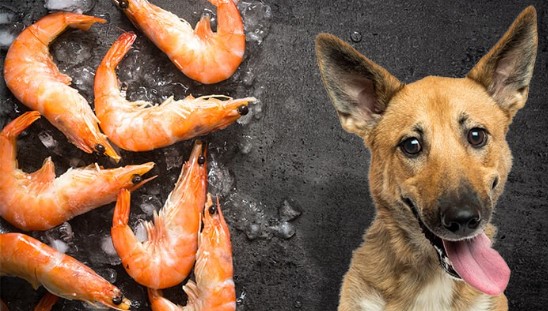While giving a boost to our immune system, we rely on something healthy like nectarine. It is rich in beta-carotene, antioxidants, and fibre that every dog needs. But can dogs have nectarines?
Dogs can have nectarine as it does not contain any toxins, but vitamins and minerals. Besides, it can help dogs to fight many diseases. Just make sure you feed a fresh and ripe nectarine with small pieces. Since it is a plant food, the quantity should be less.
There are more safety concerns related to nectarine that we dog owners must learn about.
All About Nectarines
Table of Contents
Nectarine is a skinned peach that belongs to the genus, Prunus persica. Besides, it comes from the rose family and is mostly found in Southern and Northern regions.

Since 4000 years, nectarine has been a popular fruit, especially in China. However, this fruit does not have any fuzzy trichomes but offers ample amounts of vitamins and minerals. Its key nutrients are vitamin A, vitamin C, and fibre.
Nectarine has a pit inside which we need to remove before eating. Meanwhile, people use its flesh in making pies and jams.
Can Dogs Have Nectarines?
Luckily, nectarines fall into the group of fido-friendly fruits. It has no toxins, but several nutrients that dogs need. Hence, your dog can benefit from it and enjoy the taste at the same time.
Well, this fruit is not a dog food, so you can’t make it a primary source of your dog’s diet. Besides, offering nectarines to dogs requires many exceptions. For instance, you can’t offer the pit of this peach to them. Also, you can’t offer them canned nectarines or rotten nectarines. The pieces of nectarines should be small and dogs can only have them in moderate quantities.
How Can Nectarines Be Good For Dogs?
Nectarine can hardly pose a danger to your dog if taken in the right way. This fruit comes with many nutrients, like vitamin A, vitamin C, fibre, potassium, and magnesium. Vitamin A will help with your dog’s body growth and vitamin C will maintain his immune system. Again, fibre will manage his digestive tract and potassium will support the normal blood pressure. Lastly, magnesium will help your dog’s body to absorb necessary vitamins and promote bone health.
Since nectarine is rich in beta-carotene, antioxidants, and phytonutrients, your canine friend can be saved from many diseases by having this fruit. Beta-carotene will prevent him from skin issues and antioxidants will prevent him from free radicals. On the other hand, the phytonutrients will prevent cell damage.
Nectarine can also save your dog from constipation. Thanks to its high fibre content. Again, its sugar content can help in putting some weight on your underweight paw friend.
How Can Nectarines Be Bad For Dogs?
Like some good effects, nectarine can pose some bad effects too for our canine friends. The bad effects are mainly visible when your dog doesn’t eat it in the right way.
Most commonly, dogs can’t resist themselves when they find a tasty treat like nectarines. They keep eating it and then end up with gastrointestinal issues. As said earlier, nectarine has a high amount of fibre and sugar.
According to experts, ingesting too much leads to stable blood sugar levels which can be a threat for overweight and diabetic dogs. Again, the high-fibre content in nectarine can be responsible for your dog’s upset stomach, as its main task is to soften the stool. Hence, eating too much of this fruit can cause diarrhoea.
Having a rotten nectarine can also be a reason for getting adverse effects on dogs. When it becomes rotten, it releases a toxin, named ethanol. Consuming this toxin can cause mycotoxin poisoning in your dog. The symptoms can be planting, drooling, vomiting, seizures, muscle tremors, etc.
We know nectarines contain a pit inside. As dogs don’t have any idea about the pit, they may gulp it and get an intestinal blockage from it. This can cause lethargy and stomach pain.
How To Offer Nectarines To Dogs?
Before you offer nectarine to dogs, make sure it is fresh and ripe and is not canned. Canned nectarines are high in sugar and have preservatives with some artificial colours. Your dog can have terrible side effects from those ingredients.
Anyway, take one nectarine for your dog and wash it properly. This will remove all bacteria and pesticides from the fruit. Then cut it and remove the pit from the inside. You may get some visible rotten parts, cut them off too. Then small pieces of the nectarine flesh. It would be better if the pieces were bite-sized so that dogs don’t find any choking hazards.

Another best way to offer nectarine to dogs is to make it puree and freeze it. Some dogs prefer frozen nectarine over the small pieces of it. Or you can even add the nectarine pieces with other veggies to enhance the taste.
How Many Nectarines Can Dogs Have?
How much nectarine you can give to your dog, depends on his calorie intake. Make sure the serving is 10% of his calorie intake. For example, if your dog’s entire day’s meal contains 200 calories, the serving of nectarine should be 20g.
In easy words, you can serve two to three small pieces of nectarine to your dog. If he is a large breed, you can even go with five pieces.
When Can Dogs Have Nectarines?
After a long discussion, eating nectarine inevitably requires some safety concerns for dogs. For instance, they can’t eat the pit, they can’t eat canned nectarines or rotten nectarines. In the same way, there are more exceptions regarding eating this fruit.
As said earlier, nectarine is high in sugar. It means an overweight, obese, or diabetic dog can’t have it. Also, it is rich in fibre, which may not be a good option for dogs with sensitive stomachs. Again, a dog that is allergic to plant-based foods can’t withstand nectarine.
You will hear from many vets that dogs can produce vitamin C naturally. As nectarine is high in vitamin C, it can be an unnecessary treat for your dog. However, some small pieces won’t harm them. But if your dog’s diet already includes vitamin C, he should avoid this peach.
Frequently Asked Questions: Can Dogs Have Nectarines?
Can dogs have nectarine skin?
The nectarine skin won’t pose any health threats to your dog unless it is fresh and washed. Also, make sure the pieces of this fruit are small, even if the skin is there.
What to do when dogs eat a nectarine pit?
When your dog eats a nectarine pit, you need to first watch for his symptoms. He may vomit, drool, or have diarrhoea. Let your vet know everything about it and offer him medicines prescribed by the vet.
Are nectarines toxic to dogs?
A fresh and ripe nectarine won’t be toxic for dogs unless they are healthy enough to eat it. However, a rotten nectarine has a toxin, called ethanol which can be harmful to dogs
Can dogs eat nectarine every day?
Nectarine is not a dog food, so dogs shouldn’t eat it frequently. You may add some small pieces of it for two to three days every week. If your dog feels like eating this fruit every day, make sure he doesn’t eat more than one piece.
Final Thoughts
Nectarine offers both merits and demerits. So we may still have the question, Can dogs have nectarine?
Well, yes, if your dog is not allergic, not diabetic, not overweight, and does not have a sensitive stomach. If he is fit enough to have this fruit, he should have it in small quantities, i.e. in two to three pieces.
Dogs, being curious animals, can sometimes eat more nectarine than required. In that case, you must tell your vet about it after observing the symptoms of your canine friend.




